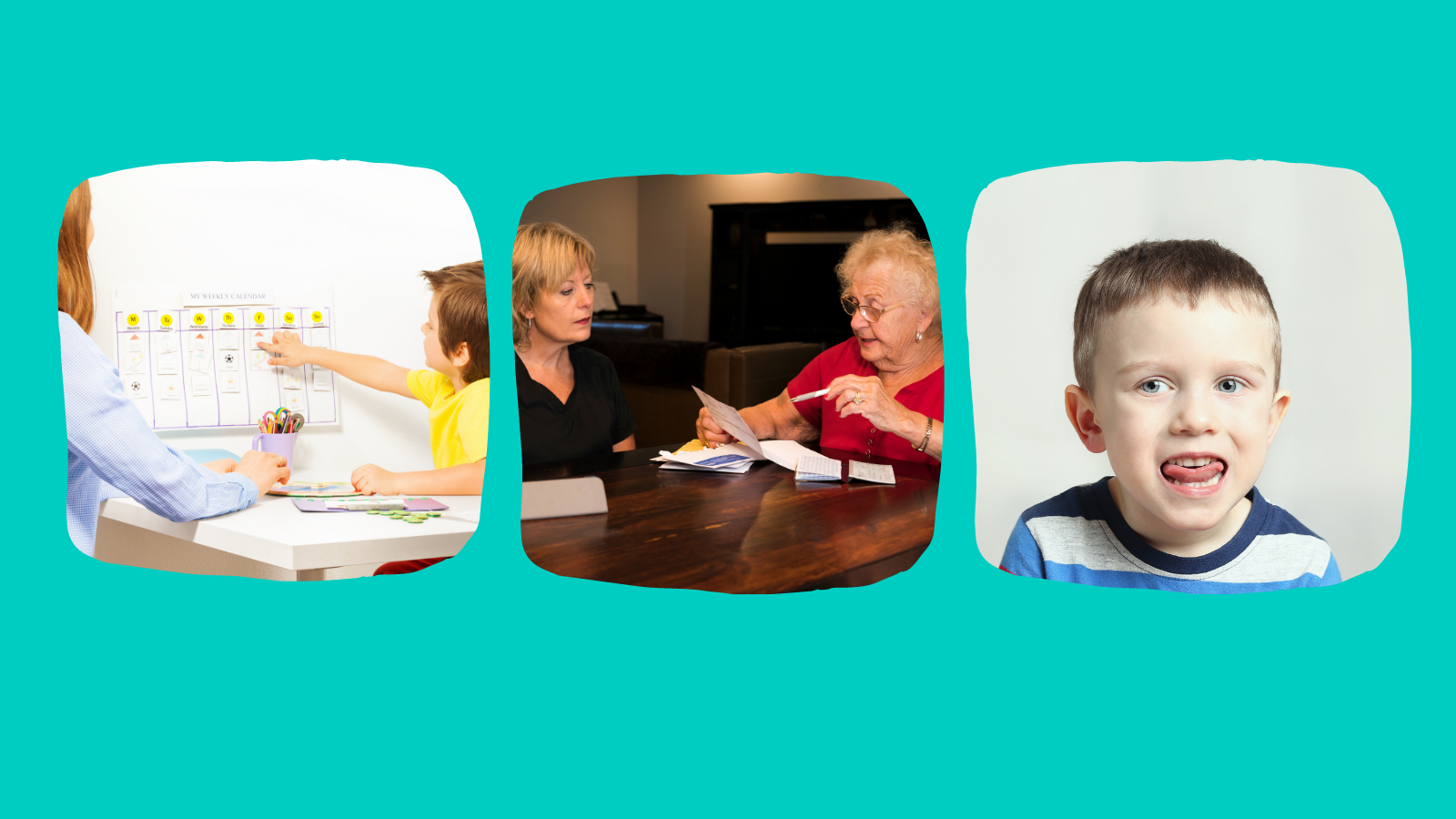When working with a client on a speech or language goal, we want our work to ‘transfer’ or ‘generalise’ so that the client can use their new skill with different people, in different situations in their ‘real world’.
One evidence-based way to improve generalisation is to expose clients to more variable input. We can do this in four main ways:
- Set size: using a greater number of training examples;
- Heterogeneity: including a greater diversity of training examples;
- Contextual diversity: practising the target in more places, with more people, and/or in more situations; and
- Scheduling: varying the client’s practice schedules, e.g. by spacing or interleaving practice sessions over time, and/or by randomising the order in which examples are presented.
In many different fields – including categorisation, motor learning and language – evidence shows that more variability tends to make initial learning more challenging, but in the longer term leads to more general and robust performance in real world situations.
Three non-mutually exclusive theories explain why increased variability might help learning and generalisation:
- Highlighting relevant task-dimensions: e.g. by helping a client ‘tune into’ which attributes are relevant (and not relevant) when assessing whether an example is in or out of a given category.
- Providing broader coverage: more diverse examples during learning may help mitigate against conservative generalisations based on what’s “typical”.
- Boosting retrieval: e.g. spacing practice sessions so that clients have to use more effort to retrieve information from long-term memory (making it easier to retrieve the information later).
Novices v experts: In many domains, beginners and experts learn differently. Beginners who are just getting the hang of a skill may benefit from low variability during initial practice to avoid overwhelm: their learning may benefit from ‘starting small’. But the opposite is true for clients with more prior knowledge.
Source: Raviv, L., Lupyan, G., Green, S.C. (2022). How variability shapes learning and generalisation. Trends in Cognitive Sciences, 26(6). DOI:https://doi.org/10.1016/j.tics.2022.03.007

Hi there, I’m David Kinnane.
Principal Speech Pathologist, Banter Speech & Language
Our talented team of certified practising speech pathologists provide unhurried, personalised and evidence-based speech pathology care to children and adults in the Inner West of Sydney and beyond, both in our clinic and via telehealth.


Leave a Reply